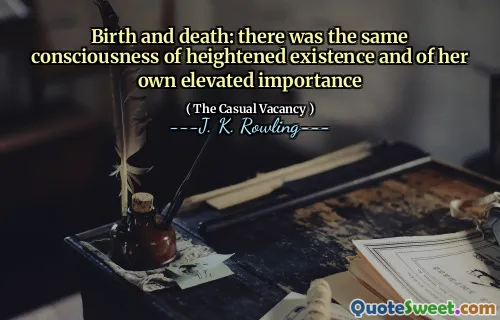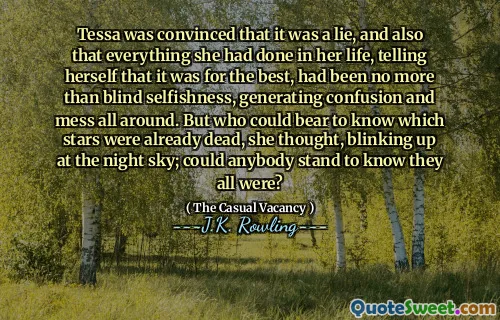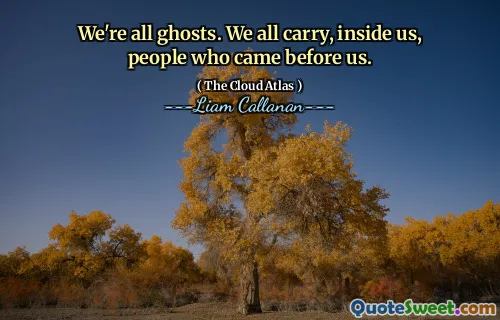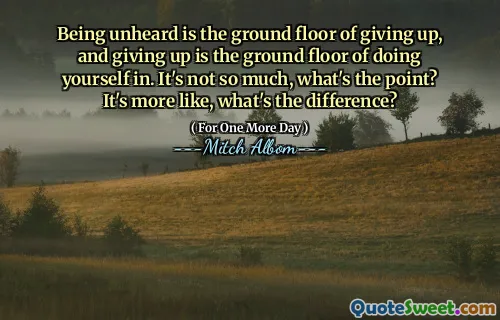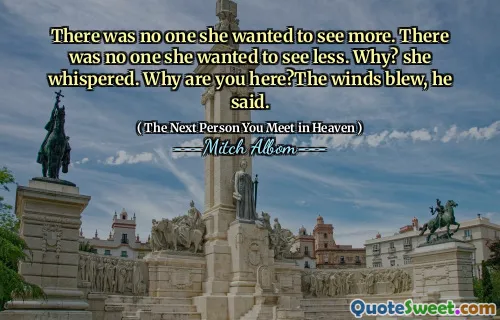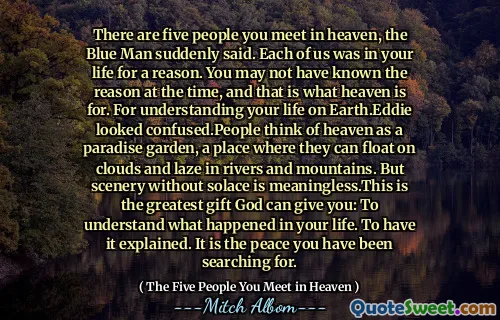
Birth and death: there was the same consciousness of heightened existence and of her own elevated importance
This quote captures a profound perspective on the human experience, emphasizing how both birth and death are moments of heightened awareness and significance. It suggests that in the transition from life to death, individuals may recognize or be overwhelmed by the sense of their own importance and the profound nature of existence itself. The idea that both the beginning and the end are bound by a similar consciousness might imply that life's most meaningful moments—birth and death—are times when our awareness of ourselves and our place in the universe is most acute. Such reflections are often found in literature that explores mortality, identity, and the human condition. It invites us to consider that our perception of importance is heightened not only at life's start but also at its conclusion, perhaps because mortality forces us to confront the core of our being and our legacy. The quote also subtly speaks to the transcendental aspect of human consciousness, suggesting that at these pivotal moments, there is a sense of elevated existence. This idea resonates with many philosophical and spiritual perspectives that see death not merely as an end, but as a significant event that confers a kind of elevated awareness—an acknowledgment of life’s fleeting yet profound nature. Such reflections are particularly poignant in the context of literature like J. K. Rowling's 'The Casual Vacancy', which often explores the themes of life's complexities and the significance we attach to our existence, especially when confronted with mortality and the profound depths of human consciousness.
